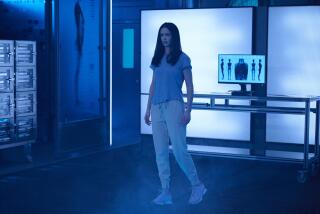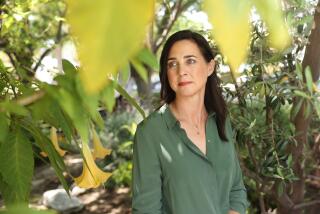Review: ‘Orphan Black’ turns out to be many times better than expected
- Share via
“Orphan Black,” which returns for its second season on BBC America on Saturday, is proof positive that you can’t judge a show by its concept.
Before it debuted last year, it was easily dismissed. It was a show about clones, for heaven’s sake. Not suspended in high-tech perpetual pre-harvest animation, or sequestered on an island with Michael Bay or conjured by the master of High Brit mournfulness Kazo Ishiguro.
These clones were a bunch of ordinary women running around modern-day Toronto (Toronto!) discovering each other and their origins even as forces evil and manipulative attempted to capture and/or kill them. And they were all played by a single actress who, quite frankly, no one had ever heard of.
Well, we’ve heard of her now.
RELATED: ‘Orphan Black’s’ Tatiana Maslany is no longer just faces in the crowd
Tatiana Maslany, the star of “Orphan Black,” may have an even bigger and more devoted fan following than her show, and that’s saying something. Though many critics, including myself, pegged “Orphan Black” as worth watching if only for the performances, no one anticipated the show’s insistence on improving with nearly every episode — or Maslany’s miraculous ability to balance a coterie of characters that kept on multiplying.
But it did and she has and by the end of the first season “Orphan Black” was not simply a quirky showcase for a seriously talented actress, it was a multi-faceted, only semi-science-fiction exploration of identity, mortality, religion and science. Liberally sprinkled with guns and one-liners.
Maslany’s was not the only performance defying preconception. As Felix, foster brother and bestie first to central clone Sarah, Jordan Gavaris gracefully and hilariously performed the essential role of audience avatar.
BEST TV OF 2013 Lloyd | McNamara
His reactions of impatient love, complete disbelief then cheeky acceptance kept the story real. As did Maria Doyle Kennedy’s watchful Mrs. S., former foster mother to Sarah and Felix and now caretaker of Sarah’s young daughter, Kira (Skyler Wexler), an engaging cipher in herself.
All of whom are granted even richer story lines in Season 2, which opens right where Season 1 left off, with Sarah desperately seeking Kira. Kira has been snatched. Presumably by Mrs. S. for protective reasons, but possibly with Mrs. S. by the mysterious neolution lab run by newly introduced clone Rachel.
Or it could be the work of the Prolethians, a group of religious zealots determined to destroy the clones, using brainwashed clone Helena as an assassin; Sarah shot and appeared to kill Helena in the finale after Helena killed their birth mother.
All of which sounds totally crazy, which, of course, it is. But also it’s not. Though taken here to giddy heights, the battle between organized religion and science is long, bloody and real, while medical and technological breakthroughs continue to redefine the essence of humanity in ways small and large.
PHOTOS: TV shows and their spinoffs
Beneath the twists and turns of “Orphan Black’s” increasingly deep and vivid story lines lie the even more basic theme of revelation: How would you react if you discovered that what you had come to know as your life was based on misinformation.
Though none of us are, in all probability, the product of a secret scientific experiment, it’s the rare person who does not experience in adulthood the shattering of some essential assumption, about the world, about identity, about the intentions of others. From the space between wreckage and rebuilding comes much of our great literature, music and art.
And now, “Orphan Black.”
---------------------------
‘Orphan Black’
Where: BBC America
When: 9 p.m. Saturday
Rating: TV-MA (may be unsuitable for children under the age of 17)
More to Read
The complete guide to home viewing
Get Screen Gab for everything about the TV shows and streaming movies everyone’s talking about.
You may occasionally receive promotional content from the Los Angeles Times.







